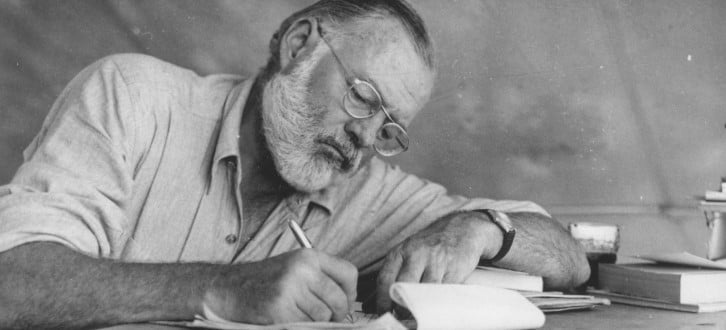This article is available in video format!
Now for the really exciting bit – writing the first draft.
If you’ve completed the planning steps in this Roadmap, your story will already be in excellent shape, and writing this first draft will probably take a fraction of the time it would have otherwise. It will also be a lot tighter right off the bat than an unplanned manuscript.
If you’ve got scene blocking or a rough outline, then all you need to do is go through each scene, converting your concepts into actual prose, complete with nice sensual description, adjectives, metaphors, pithy dialogue and general awesomeness.
Having the planning done means you can concentrate on the words, without having to worry about the large scale structure of your story – because you already know you’ve got that sorted.
However, many successful authors prefer to write without a plan, so you may be jumping straight in at a first draft.
Here are seven tips for smashing a first draft:
Set a deadline and daily wordcount target

A reasonable word count target for your first draft is around 50,000 words (more if you’re writing in a genre such as fantasy), which will eventually give you a final manuscript of around 90,000 words (again, more in some genres).
In an ideal world, you would try to complete the first draft in one month, writing around 2,000 words per day. This has the advantage of encouraging a more feverish, immersive experience and that energy will leak into the novel.
However, for some people that is simply unrealistic because of other life commitments and circumstances.
So, pick a target that’s realistic and achievable, don’t try to be a hero end up demoralized when you fail after three days.
If you know that 500 words per day is a reasonable, achievable goal, then set a target date four months from now to get that first draft finished – and stick to it.
Put everything else on the backburner

When you have a newborn baby, you will often be advised to let the housework slide, to get more takeaway, and don’t worry about keeping up appearances.
Well, your first draft is now your baby. Anything that can wait a few weeks, let it wait.
You should probably still feed the kids.
Get blind drunk

I don’t mean that.
I’m referring to the (supposed) Ernest Hemingway quote: 'Write drunk, edit sober', but actually alcohol is entirely beside the point.
The potential advantage of drinking is the reduction or removal of inhibitions - or in the case of writing: your inner critic.
There is plenty of time in writing a novel for editing, checking over, being a perfectionist, but - and I can't state this strongly enough - the first draft is NOT that time.
Trying to get everything right is probably the biggest reason people never finish their first novel, and if it's not finished, then it's definitely not perfect.
It's imperative you just steam on through, and never look back. Don't edit, don't even read it. Don’t worry about elegant metaphors, sensible sentence structure or even – dare I say it – accurate grammar.
Anything that is not writing words is wasting precious time that could be spent writing more words.
This is probably the most valuable piece of advice regarding getting your first draft completed.
Just one more sentence

Write this on a post it note (or something that’s actually sticky) and stick it up above your desk. When you’re about to stop writing, read it and do it. Just one more sentence. Go on. Just one more.
Get up 20 minutes early

I’m not a morning person, trust me, I wouldn’t recommend this if I didn’t really think it was worth it. But if you can get 500 words done before you even have breakfast – hey, before you even brush your teeth – then you’ll be off to a buzzing start to every day.
Disconnect

From the Internet, from your phone, from all social media. The Internet is the novel writer’s friend, but not when you’ve got a first draft to get out.
Book in a binge writing weekend towards the end

If life circumstances allow, get a cottage in the middle of nowhere and bring a giant spaghetti bolognese so you don’t have to cook (or even have the chance to waste time selecting a pizza). Having two or three days to get your head down and thrash out the last five thousand words can make the difference between success and failure.
Your Task
In the Novel Factory, go to the Manuscript section. Click on each of the scenes in turn, and using your Blocking or scene summaries as reference, write the first draft of each scene.
Alternatively, complete your first draft on paper or in the alternative software of your choice.
